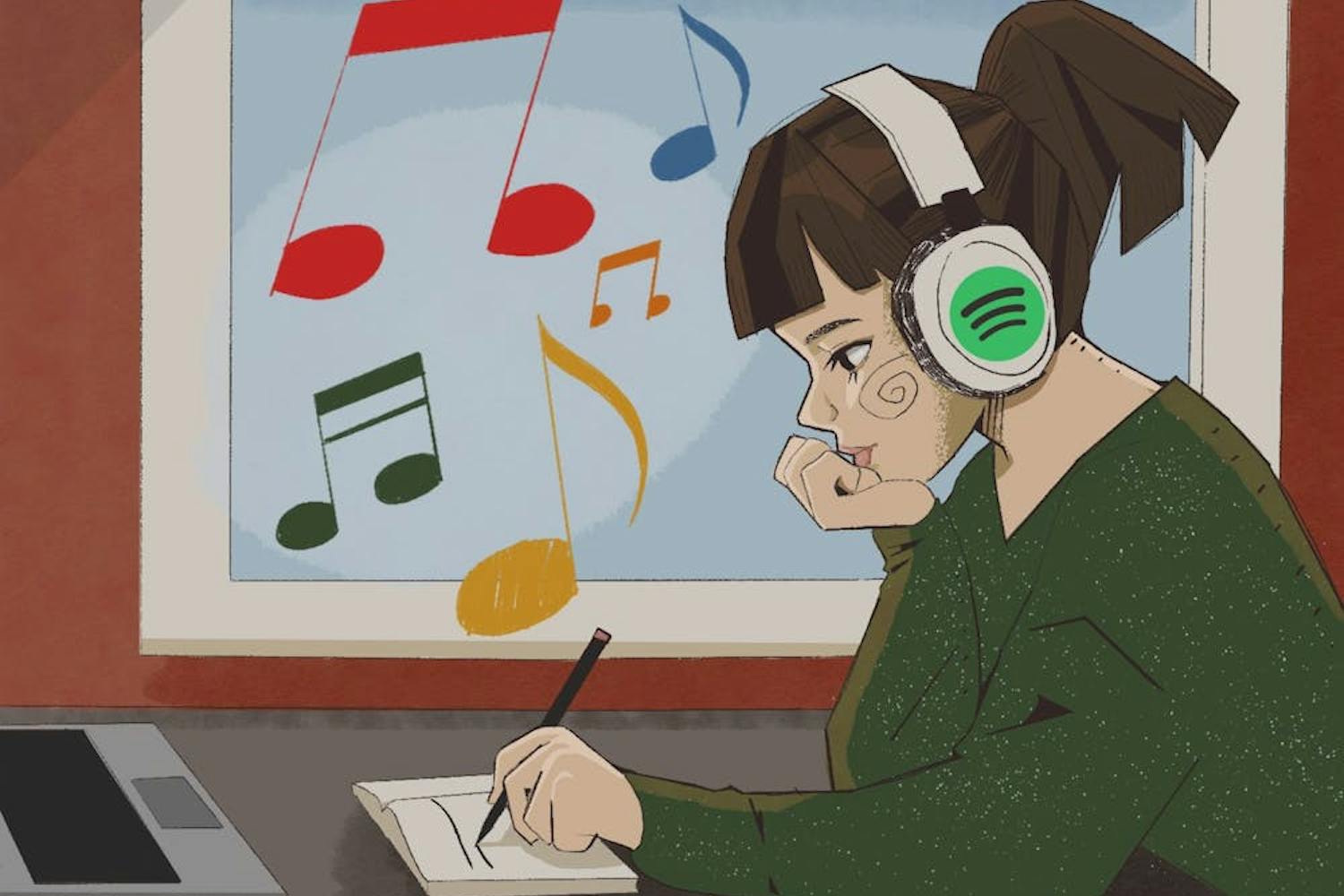 Long rows of books are arranged on the bookshelves in the Hayden Library for new and returning students for the spring semester. The Dean of Humanities in the College of Liberal Art and Sciences George Justice said the library has been facing problems with journals and books disappearing. (Photo by Ryan Liu)
Long rows of books are arranged on the bookshelves in the Hayden Library for new and returning students for the spring semester. The Dean of Humanities in the College of Liberal Art and Sciences George Justice said the library has been facing problems with journals and books disappearing. (Photo by Ryan Liu)The struggle to find journals and research materials will be getting easier for students and professors in the coming semester, as George Justice, dean of humanities in the College of Liberal Arts and Sciences, will be working with librarians to better serve the faculty and students in order to provide a simpler way to find materials.
Many journals have been placed into high-density storage on the Polytechnic campus in order to provide more space in Hayden Library for the more urgent materials students and faculty may need on a day-to-day basis, and this has caused a problem for researchers in the past. Spanish professor Emil Volek first began noticing missing journals a few years ago and said he wants more material placed back in the library for easier access.
“It’s becoming more difficult to do research not only in humanities but all historical studies,” he said. “Taking away things makes the library less useful.”
Justice said the problem is strictly because of space requirements for the many journals being placed into storage.
"Where the sciences use laboratories for most of their studies, the humanities uses books and journals where electronic versions are not available," he said. "I wanted to call a meeting between humanities faculty and library leadership and University librarian Sherrie Schmidt to represent a balance between more digital advanced scholars and book-based scholars."
President Michael Crow said in a December meeting with The State Press editorial board that the University subscribes to approximately 25,000 journals and space is the key issue in having to place material in the high-density storage facility on the Polytechnic campus.
"They collect over time, physically if they're not electronic," he said. "So you have tens of thousands of individual journals accumulating over time, (and) you've got to put them somewhere."
Libraries are at a juncture point where many materials are being placed online, Justice said.
"What came out of the meeting for me is that the libraries absolutely understand the life connection between the humanities and the libraries," he said. "They are very eager to work with faculty to make sure they have the resources they need and to work with students to make sure they have the resources they need."
Justice said he has found the libraries incredibly responsive in getting materials needed for him in the past and for his wife, English professor Devoney Looser.
Crow said the facility on the Polytechnic campus housing the journals is highly efficient and located nearby to provide easy access to material for students.
"So we have a facility on the Polytechnic campus which is a robot-controlled, hydraulic whatever," he said. "You know, you might go to the library and say, 'Hey I'd like to pick this up when I come back on Thursday' or whatever. That's how it works now."
Speed and efficiency is important to both Crow and the professors needing the materials for their classes, he said.
"It might be that we could make it faster," he said. "It might be that it's just a few miles away at the Polytechnic campus. We're not throwing anything away; that would make librarians die if they had to throw something away."
The library is continuing to work to better the service provided for faculty and students, Schmidt said.
"There are subject librarians available for students to have easier access and provide help when finding material, and if students or professors know they will be needing certain journals, the library will pull them from the high-density storage location and hold them at the library," she said.
The importance of online journals is becoming more prevalent as we move into a digital age where everything can be at our fingertips in a few seconds, Justice said.
Crow emphasized the use of online journals. "We're trying to put as many things electronic as we possibly can so we have a couple thousand electronic journals, and we're trying to be responsive to individual faculty members, and so if individual faculty members have individual needs, then they can work with the library staff to meet their individual needs," he said. "And sometimes the individual faculty member or the graduate student or the undergraduate student gets frustrated and then we try to be accommodating." Schmidt said in order for students to have the easiest access possible in finding materials the library is working with Justice to provide information on the subject librarians so students know who to talk to while researching.
"We are working with Dean Justice to have our subject librarians fill out biographies online so professors know who to direct students to for research help," she said.
Crow stated the importance of the interlibrary loan program.
"We also have interlibrary loan, which means that any object that's in the physical form of a book or a journal you can have at this institution very, very rapidly," he said. "Anything that exists. That's pretty powerful. At no cost. That's true for a student; that's true for faculty members." Crow said when he applied to his first job many years ago at the University of Illinois at Urbana-Champaign, they had a level-five collection, which meant they would buy anything he asked them to buy. "So sometimes a faculty member will say, you know, 20 years ago I could go down there and they had everything I needed, right there," he said. "And now I need the 1983 journals on Chaucer, and they're not there, but they're not gone, they're just ... for some people, it hurts their feelings."
Crow said he wants the librarians and professors to know he is on their side and is working to help them with these issues.
"They think that we don't support them anymore or that they're less important or something," he said. "It doesn't mean that."
Reach the reporter at jshanco2@asu.edu or follow him on Twitter @joey_hancock




